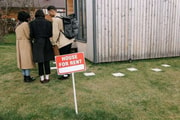Feeling a shift in your friendship? Here’s how to get back on track
By
Maan
- Replies 0
Friendships can be one of the most grounding and joyful parts of life—until they start to drift.
When the connection begins to fade, it’s not always clear whether to hold on, let go, or try to repair what’s been lost.
Here’s what to consider if you’re wondering whether an old friendship is worth saving.
Friendships often needed attention and care, even though they were supposed to be easy, supportive relationships.
It was completely normal for relationships to shift over time, and a cooling-off period didn’t always signal failure.
‘Sometimes we struggle to accept that a friendship has run its course for any number of reasons,’ said Nina Badzin, host of the podcast Dear Nina: Conversations about Friendship.
‘Pivoting the relationship to a more casual connection honours the past friendship without forcing an affection and chemistry that cannot be forced.’
If someone decided they wanted to keep the friendship alive, there were some meaningful ways to reconnect.
Asking directly: ‘Are you just busy, or is it me?’ could clear up confusion.
Max Dickins, author of Billy No-Mates: How I Realised Men Have a Friendship Problem, explained that one of the best things about friendships was that they were ‘free of the obligations and expectations of other forms of love’.
‘You or I can disappear from view for a while, and that’s OK. This is a good thing – grown-up life can be overwhelming, and we want our friendships to be a relief, not another thing we feel we are failing at.’
However, when silence stretched out for months, especially after once frequent contact, it was hard not to worry.
‘Better to talk about it, so you might repair things,’ he added.
Sometimes, a simple: ‘What have you been up to?’ was enough to relight the spark.
Robert Waldinger, director of the Harvard Study on Adult Development and co-author of The Good Life, noted: ‘Everyone likes to talk about themselves.’
‘Just ask people to tell you about the things that are most important to them, because curiosity goes a long way toward reconnecting people.’
He also suggested that if time had passed, a friend’s life could look completely different—‘Just really be interested in who this person is now.’
Michelle Elman, author of Bad Friend: Why Friendship Breakups Hurt and How to Heal, recommended asking: ‘How do you think our friendship has changed over the years?’
‘This can bring up the fact that you don’t feel as close as you used to,’ she said.
‘It allows the question to be open and can make someone reflect and question something they might not have noticed.’
Distance didn’t always mean damage—sometimes people simply grew apart.
Elman explained that shifts could be positive ‘if your friendship is flexible and can adapt’.
Still, a friend might have intentionally created that space.
‘Clarity is kindness and while it might be difficult to hear, it is better to know,’ said Elman.
‘You are allowed to have hurt feelings and also be grateful they were honest with you, so you can put that time and energy towards someone who appreciates it.’
Another way to reconnect was by expressing feelings: ‘Do you know that I miss you?’
Dickins pointed out that friendship was often ambiguous: ‘It is a relationship without ritual – unlike in romantic love, we do not publicly mark a friendship’s significance.’
He added that for men, it was rare to express how much they valued a friend.
‘The simple act of telling your friend that you miss them has a clarifying effect and – when reciprocated – leads to a mutual recognition that makes the whole enterprise feel more meaningful.’
Planning time together mattered too, and Badzin emphasised the value of specificity.
‘When you’re inviting a friend to hang out, don’t offer a generic “Let’s hang out” text. Always suggest specific dates.’
The hardest part often wasn’t desire but logistics: ‘A huge hurdle to seeing friends is scheduling. If you’re willing to do the heavy lifting of suggesting the dates and even the place, you’re already ahead.’
Feeling like the only one making an effort could be draining, but Badzin suggested reframing that frustration.
‘You may need to accept that we all bring different strengths to our friendships. Perhaps yours is reaching out and planning, but your friend’s strength is being an excellent listener.’
She encouraged people to value complementary skills over matching ones.
An invitation like: ‘Would you like to join me at...?’ might turn into a regular tradition.
A recurring catch-up—a weekly walk, monthly cinema trip, or trivia night—could reduce scheduling stress.
‘If you talk to your friend every week or every month even, you have more things you can check in about, particularly if you share interests,’ said Waldinger.
Method of communication mattered, too.
‘Sometimes we’re over-texting the friend who prefers a phone call,’ said Badzin.
‘Perhaps we’re calling the friend who communicates best with voice memos on their own schedule.’
She also warned against relying solely on digital interactions—‘A close friendship cannot exist on texts and exchanges of memes alone.’
Seeing each other in person could make all the difference.
A powerful question to ask was: ‘What’s the most important way a person shows up for you?’
Elman explained that the goal was to make sure both parties were getting their needs met.
‘“Showing up” will look different for everyone, and without asking, you won’t know what matters to your friend most.’
Another deepening question could be: ‘What’s something you wish you could talk to me about and haven’t?’
‘Sometimes people don’t know how to bring up conversations and this is a way you can open that door and see if there is anything unresolved,’ said Elman.
She encouraged people to approach those answers with curiosity and as little judgement as possible.
‘Instead of focusing on why someone didn’t tell you something sooner, continue the conversation with curiosity, with the goal of understanding them better.’
Finally, try asking: ‘If I were to organise a great day out for us, what would it be?’
Dickins noted that intimacy in friendships wasn’t always about confessions—it could also be about shared experiences.
People often drifted when they no longer had mutual goals or routines.
‘A useful place to begin rejuvenation is to ask, what might we share together now?’
In a previous story, we explored what it takes to form lasting friendships later in life.
While this article focuses on reconnecting with those you’ve drifted from, that piece dives into building strong bonds from the start.
If you're looking to strengthen new or existing relationships, it’s worth a read.

Have you ever tried to rekindle an old friendship—how did it go? Let us know your thoughts in the comments.
When the connection begins to fade, it’s not always clear whether to hold on, let go, or try to repair what’s been lost.
Here’s what to consider if you’re wondering whether an old friendship is worth saving.
Friendships often needed attention and care, even though they were supposed to be easy, supportive relationships.
It was completely normal for relationships to shift over time, and a cooling-off period didn’t always signal failure.
‘Sometimes we struggle to accept that a friendship has run its course for any number of reasons,’ said Nina Badzin, host of the podcast Dear Nina: Conversations about Friendship.
‘Pivoting the relationship to a more casual connection honours the past friendship without forcing an affection and chemistry that cannot be forced.’
If someone decided they wanted to keep the friendship alive, there were some meaningful ways to reconnect.
Asking directly: ‘Are you just busy, or is it me?’ could clear up confusion.
Max Dickins, author of Billy No-Mates: How I Realised Men Have a Friendship Problem, explained that one of the best things about friendships was that they were ‘free of the obligations and expectations of other forms of love’.
‘You or I can disappear from view for a while, and that’s OK. This is a good thing – grown-up life can be overwhelming, and we want our friendships to be a relief, not another thing we feel we are failing at.’
However, when silence stretched out for months, especially after once frequent contact, it was hard not to worry.
‘Better to talk about it, so you might repair things,’ he added.
Sometimes, a simple: ‘What have you been up to?’ was enough to relight the spark.
Robert Waldinger, director of the Harvard Study on Adult Development and co-author of The Good Life, noted: ‘Everyone likes to talk about themselves.’
‘Just ask people to tell you about the things that are most important to them, because curiosity goes a long way toward reconnecting people.’
He also suggested that if time had passed, a friend’s life could look completely different—‘Just really be interested in who this person is now.’
Michelle Elman, author of Bad Friend: Why Friendship Breakups Hurt and How to Heal, recommended asking: ‘How do you think our friendship has changed over the years?’
‘This can bring up the fact that you don’t feel as close as you used to,’ she said.
‘It allows the question to be open and can make someone reflect and question something they might not have noticed.’
Distance didn’t always mean damage—sometimes people simply grew apart.
Elman explained that shifts could be positive ‘if your friendship is flexible and can adapt’.
Still, a friend might have intentionally created that space.
‘Clarity is kindness and while it might be difficult to hear, it is better to know,’ said Elman.
‘You are allowed to have hurt feelings and also be grateful they were honest with you, so you can put that time and energy towards someone who appreciates it.’
Another way to reconnect was by expressing feelings: ‘Do you know that I miss you?’
Dickins pointed out that friendship was often ambiguous: ‘It is a relationship without ritual – unlike in romantic love, we do not publicly mark a friendship’s significance.’
He added that for men, it was rare to express how much they valued a friend.
‘The simple act of telling your friend that you miss them has a clarifying effect and – when reciprocated – leads to a mutual recognition that makes the whole enterprise feel more meaningful.’
Planning time together mattered too, and Badzin emphasised the value of specificity.
‘When you’re inviting a friend to hang out, don’t offer a generic “Let’s hang out” text. Always suggest specific dates.’
The hardest part often wasn’t desire but logistics: ‘A huge hurdle to seeing friends is scheduling. If you’re willing to do the heavy lifting of suggesting the dates and even the place, you’re already ahead.’
Feeling like the only one making an effort could be draining, but Badzin suggested reframing that frustration.
‘You may need to accept that we all bring different strengths to our friendships. Perhaps yours is reaching out and planning, but your friend’s strength is being an excellent listener.’
She encouraged people to value complementary skills over matching ones.
An invitation like: ‘Would you like to join me at...?’ might turn into a regular tradition.
A recurring catch-up—a weekly walk, monthly cinema trip, or trivia night—could reduce scheduling stress.
‘If you talk to your friend every week or every month even, you have more things you can check in about, particularly if you share interests,’ said Waldinger.
Method of communication mattered, too.
‘Sometimes we’re over-texting the friend who prefers a phone call,’ said Badzin.
‘Perhaps we’re calling the friend who communicates best with voice memos on their own schedule.’
She also warned against relying solely on digital interactions—‘A close friendship cannot exist on texts and exchanges of memes alone.’
Seeing each other in person could make all the difference.
A powerful question to ask was: ‘What’s the most important way a person shows up for you?’
Elman explained that the goal was to make sure both parties were getting their needs met.
‘“Showing up” will look different for everyone, and without asking, you won’t know what matters to your friend most.’
Another deepening question could be: ‘What’s something you wish you could talk to me about and haven’t?’
‘Sometimes people don’t know how to bring up conversations and this is a way you can open that door and see if there is anything unresolved,’ said Elman.
She encouraged people to approach those answers with curiosity and as little judgement as possible.
‘Instead of focusing on why someone didn’t tell you something sooner, continue the conversation with curiosity, with the goal of understanding them better.’
Finally, try asking: ‘If I were to organise a great day out for us, what would it be?’
Dickins noted that intimacy in friendships wasn’t always about confessions—it could also be about shared experiences.
People often drifted when they no longer had mutual goals or routines.
‘A useful place to begin rejuvenation is to ask, what might we share together now?’
In a previous story, we explored what it takes to form lasting friendships later in life.
While this article focuses on reconnecting with those you’ve drifted from, that piece dives into building strong bonds from the start.
If you're looking to strengthen new or existing relationships, it’s worth a read.
Key Takeaways
- Friendships naturally changed over time, and distance didn’t always mean failure.
- Reconnecting could start with honest questions like ‘Are you just busy, or is it me?’ or expressing feelings like ‘I miss you’.
- Making specific plans and respecting different communication styles helped maintain meaningful bonds.
- Asking reflective questions deepened understanding and helped both people feel seen and valued.
Have you ever tried to rekindle an old friendship—how did it go? Let us know your thoughts in the comments.








